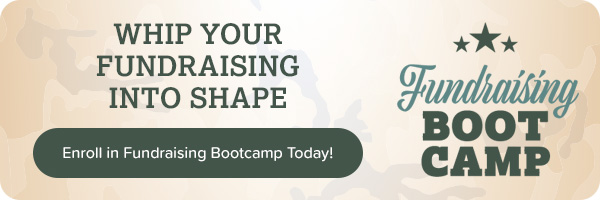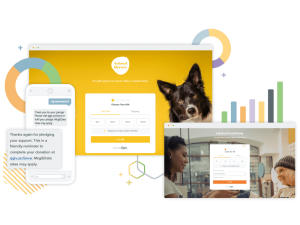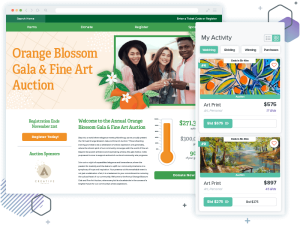The fundraising industry is constantly changing, and nonprofit organizations should regularly be evaluating the kinds of donors they pursue and how they appeal to them.
Recent articles are turning preconceptions about who donates to charities (and how!) on their heads; nonprofits must adjust accordingly!
Some recent statistics that are shaking up the fundraising world right now include:
- Although the Baby Boomer generation has historically been considered the most generous group, a World Vision survey shows that men between the ages of 18-34 are more likely to make a charitable donation than any other group.
- 47% of donors over the age of 60 give online despite the stereotype that their age group resists the use of technology.
- Younger generations are drawn to give online, but 75% of young donors are turned off by out-of-date websites.
- Despite the prevalence of direct mail campaigns, online resources are considered 20% more useful than direct mail when it comes to influencing donors to make a gift.
- 57% of people who watch nonprofit videos go on to make a donation, which highlights the necessity of expanding into online advertising/ marketing.
And those are just a few statistics that are changing the way nonprofits raise money! What do nonprofits do with that kind of information?
We’re here to tell you about four ways you can keep your fundraising strategy up-to-date with the changing times:
- Adjust your nonprofit’s target demographic.
- Diversify your nonprofit’s channels.
- Incorporate live events into your fundraising strategy.
- Regularly reevaluate your nonprofit’s campaigns.
Keep reading to learn more about creating a fool-proof fundraising strategy.
1. Adjust Your Nonprofit’s Target Demographic
Are most of your donors from the Baby Boomer generation? Are you focusing heavily on reaching wealthy donors even though the poorest Americans donate the greatest percentage of their income?
If you notice that most of your fundraising efforts are spent on a small subset of people, it might be time to reevaluate how you choose your target audience. Courting potential donors from younger generations and in different income brackets is a smart move!
2. Diversify Your Nonprofit’s Channels
Direct mailing is a time-proven way to raise money, but the importance of online and mobile technology can’t be ignored. Social media outlets aren’t just for teenagers anymore; people of all age groups are on Facebook and other social networking sites.
Social media presence isn’t much use without a solid, up-to-date website to back it up. Neglecting face-to-face fundraising in favor of online work is a recipe for disaster. The best thing nonprofits can do to ensure their continued fundraising success is to diversify!
3. Incorporate Live Events in Your Fundraising Strategy
Events are an essential part of any fundraising strategy and should be updated to reflect the changing interests of your donors. Live events work so well because they allow your staff to speak one-on-one with supporters and explain your cause in an engaging manner.
Of course, to host a successful event, you’ll need to clearly define your budget and goals as well as craft a marketing plan. To help organize every detail, many organizations use event management software. As a result, organizations can easily track RSVPs, create online registration forms, and plan an effective communication strategy.
4. Regularly Reevaluate Your Nonprofit’s Campaigns
Fundraising norms are being turned on their heads. Older donors want to give online. Internet marketing is proving more effective than other marketing styles. Lower-income families donate more of their income than upper-class families. Millennial men are more likely to donate than any other group of people.
The biggest thing nonprofits can take away from this is that “norms” never stay the same in this sector. It’s important to periodically review fundraising campaigns to evaluate their effectiveness and update them when it’s necessary. That’s the best way to stay relevant!
There you have it: four ways to improve your fundraising strategy. Use these best practices to help you improve your fundraising and donor relationships.
If you’re looking for more fundraising advice, keep reading these fabulous additional resources:
- Top Online Donation Tools: With more and more donors seeking ways to give online, it’s paramount that organizations have a powerful online giving tool. Get our list of top providers to get started!
- Donor Stewardship Guide: Cultivating relationships is an essential part of any fundraising strategy. Learn more about donor stewardship with our in-depth guide.
- The Ultimate Fundraising Assessment: Are you looking for a step-by-step guide to creating a fundraising strategy. This guide from Double the Donation will help you create (and assess!) your strategy to make it stronger.



